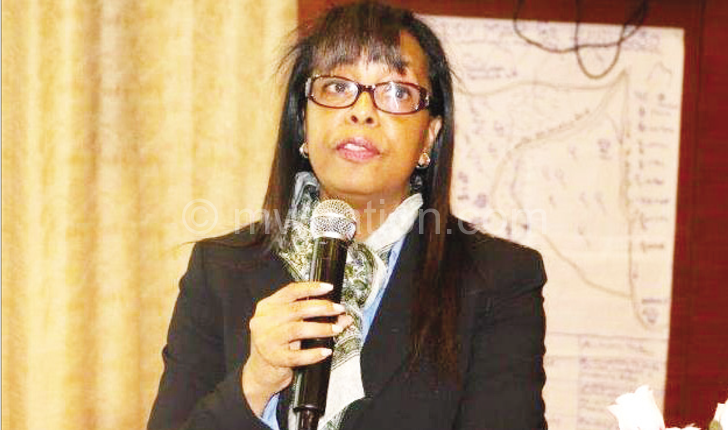‘Malawi is still recovering from floods’
The past two years, Malawi has faced a number of natural disasters including floods and drought. Our reporter, FATSANI GUNYA caught up with Carol Florence-Smereczniak, UNDP Deputy Resident Representative for Malawi who, in this exclusive interview, discusses the level of support the UN body has been rendering towards disaster risk management efforts.
The UNDP has taken a leading role in efforts to alleviate the effects of various natural disasters that have hit Malawi of late. Why?

This is in line with our mission worldwide where we partner with people at all levels of society to help build nations that can withstand crisis and drive and sustain the kind of growth that improves the quality of life for everyone. On the ground in more than 170 countries, we offer global perspective and local insight to help empower lives and build resilient nations.
Tell us more about the trilateral cooperation project launched last week in Lilongwe on Disaster Management and Risk Management?
This trilateral cooperation project is jointly run by the People’s Republic of China, Malawi Government and the UNDP. The launch was significant as it launched the continuation of a journey that started in 2013 with the China-Africa UNDP Cooperation Umbrella Programme, of which the Small Grants Scheme (SGS-project) is a component. This SGS-project is an integral part of the partnership on South-South cooperation between UNDP and the Government of China, concluded through a Memorandum of Understanding signed to enhance collaboration on global development issues. Basically, the trilateral cooperation is an innovative form of South-South cooperation that pools together resources from the Chinese Institutions, UNDP and partner country institutions to generate greater synergy for greater development benefits and mutual learning. UNDP has been piloting trilateral cooperation projects with Chinese counterparts in other developing countries since 2011, among others on renewable energy in Zambia and Ghana and on Disaster Risk Management in Bangladesh and Nepal. It is noteworthy that the Government of China emerged as a major South-South Cooperation provider over the past decades, contributing a total of $14.4 billion between 2010 and 2012. UNDP Malawi is privilleged to be among the pioneers of the South-South cooperation.
How different is this trilateral cooperation between China, Malawi and the UNDP compared to other similar projects we have?
Primarily, this cooperation has some very unique features to others in the sense that it is an initiative which exclusively focuses on flood risk management in the 15 disaster-prone districts of the country [Malawi]. Also, it targets community-based organisations and civil protection committees, which are structures that are recognised by the Disaster Risk Management Act to be the first responders to implement activities when disasters occur at sub district level. We are talking of committees that are composed of people who are themselves part of the vulnerable communities, and traditionally they have, to some extent, been seen as victims when disasters strike. So in essence, this agreement is shifting the focus of affected populations from being victims to becoming active agents of change. The approach is expected to make them more self-reliant, more responsible and more resilient in the long run.
Why Malawi?
As we all know, Malawi is in a State of National Disaster following the impact of El Nino, with a projected impact of La Nina over the next few months. From the projections, La Nina phenomena for Southern Africa will lead to heavy rains that may result in significant flooding and isolated dry spells in some parts. Malawi is still recovering from the effects of the 2015 floods that affected all the 15 disaster-prone districts. This support, therefore, could not have come at a better time, as vulnerable communities look for innovative solutions to minimise the impact of floods and become resilient to risks and shocks.
The cooperation has just awarded projects to some six community-based institutions to implement in their respective areas. How specifically will the projects help in disaster risk management?
The projects we have just awarded are focusing on building physical infrastructure to control the flow of flooding water and safe havens to provide shelter to displaced communities in flood-prone low lying areas. The physical infrastructure is expected to protect property and fields of farming communities as well as infrastructure that supports social services.
Lastly, the UNDP did fly in the Chinese Professor Weihua Fang from Beijing Normal University. How related was his coming to the trilateral cooperation?
To begin with, China injected financial resources to the initiative amounting to $500 000 (K345 million). As such, they had to provide some technical support as well through which Professor Fang comes into the picture. He has been working with our offices in China and Malawi and he has been part of the entire procurement process including field appraisal. On the other hand, the UNDP is contributing $400 000 (K276 million) to this initiative, and along with DoDMA, we will regularly monitor the performance of all organisations closely, as we would like to see communities of good practice emerge from this support.





